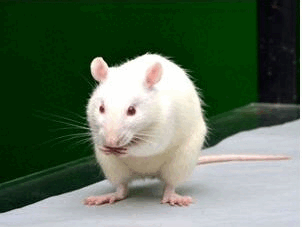ANTI-DYSLIPIDAEMIA AND CARDIO-PROTECTIVE EFFECTS OF NIGERIAN BITTER HONEY IN STREPTOZOTOCIN INDUCED DIABETIC RATS
Keywords:
Bitter honey, cardiovascular risk, diabetes, dyslipidemia, MetforminAbstract
Background and Aim: Chronic hyperglycemia, oxidative stress, and dyslipidemia usually predispose to cardiac aberrations. Certain honey samples have been reported to worsen glycemic control or proven to be cardiotoxic. The study sought to elucidate the roles of Nigerian bitter honey in experimental diabetes.
Experimental Procedures: Diabetes was induced in adult female Wistar rats (90–110g) by single administration of streptozotocin (65 mg/kg body weight, i.p.). Rats were randomly allocated into six groups (n= 8). Bitter honey (50 mg/kg) and metformin (100 mg/kg) were orally administered daily for 28 days. Animals were sacrificed on day 29 and blood samples were obtained via cardiac puncture. Lipid profile and lipid peroxidation analysis were carried out using standard methods. Atherogenic, coronary, and cardiovascular risk indexes were calculated. Heart, pancreas, and lung tissues were harvested and subjected to histopathological assessment. Data were analyzed using one way ANOVA, and statistical significant level was set at p<0.05.
Result and Discussion: Bitter honey treatment in the diabetic animals significantly reduced hyperglycemia, triglyceride, total cholesterol, low-density lipoprotein, malondialdehyde, and cardiovascular risk levels (p<0.05). Correspondingly, HDL and reduced glutathione levels were significantly higher (p<0.05). Bitter honey preserved the histoarchitectural integrity of the cardiomyocytes and lungs tissue.
Conclusion: The bitter honey is a highly remarkable repository of naturally occurring bioactive compounds that can potentially modulate downstream biochemical pathways of hyperglycemia, dyslipidemia and lipid peroxidation. The bitter honey may therefore be a promising new source of anti-diabetic and cardio protective nutraceuticals.

Peer Review History:
Received: 3 February 2023; Revised: 10 March; Accepted: 28 April 2023, Available online: 15 May 2023
Academic Editor: Dr. Amany Mohamed Alboghdadly , Ibn Sina National College for Medical Studies in Jeddah, Saudi Arabia, amanyalboghdadly@gmail.com
, Ibn Sina National College for Medical Studies in Jeddah, Saudi Arabia, amanyalboghdadly@gmail.com
Reviewers:
 Dr. Sangeetha Arullappan, Universiti Tunku Abdul Rahman, Malaysia, sangeetha@utar.edu.my
Dr. Sangeetha Arullappan, Universiti Tunku Abdul Rahman, Malaysia, sangeetha@utar.edu.my
 Dr. Rawaa Souhil Al-Kayali, Aleppo University, Syria, rawah67@hotmail.com
Dr. Rawaa Souhil Al-Kayali, Aleppo University, Syria, rawah67@hotmail.com
Downloads

Published
How to Cite
Issue
Section

This work is licensed under a Creative Commons Attribution-NonCommercial 4.0 International License.









 .
.